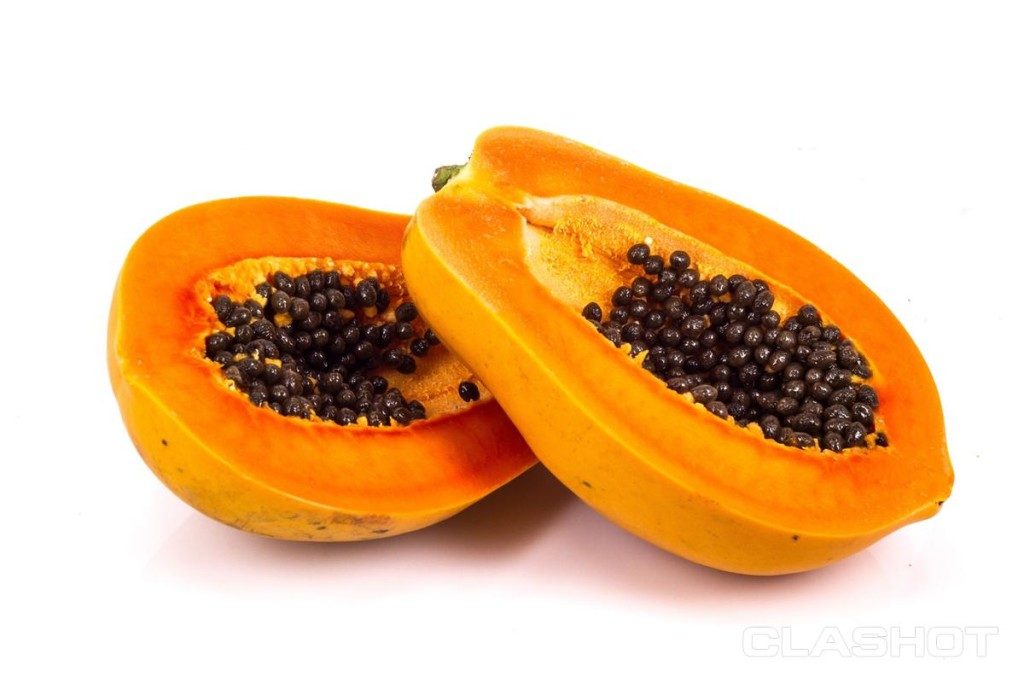Kerson Fruit (Muntingia calabura)

This little red rotund fruit with a tart cherry-like flavor that grows easily in many tropical countries has a lot more benefits than meets the eye. Containing many powerful antibacterial compounds, this cute little fruit also known as Panama berry, Jamaican cherry, and Singapore cherry is also said to have antibacterial properties, help ease the pain from gout, helps to lower blood sugar levels, helps to relieve headaches and lower fever, and is also a very good source of Vitamin C, a powerful antioxidant able to ward off flu and colds, and its tea made from the leaves even helps to promote cardiovascular health!
Soursop (Annona muricata)

Known in many Spanish-speaking countries as guanabana, this large, spiny, green, tropical fruit with a sweet flesh is used as the base of numerous beverages, and other sweet foods like ice cream. Said to contain plenty of fatty acid compounds called acetogenins, this powerful fruit is now widely used in research, in particular, for their potential use to retard, or even prevent the growth of cancer! The flesh of the fruit mainly provides carbohydrates, and is also packed with abundant doses of ascorbic acid, and numerous B vitamins like niacin, riboflavin and thiamine as well as phosphorus, calcium and traces of beneficial iron.
Papaya (Carica papaya)

A previously rare and exotic fruit that grows in tropical countries is now readily available to fruit enthusiasts at most times of the year. Usually sweet, this vibrant, usually round, yellow or orange-colored fruit, when used topically in its mashed form as a lotion, is said to be beneficial to promoting wound healing, and prevents further infection from burns. Also known to relieve constipation, its high content of digestive enzymes known as papain promotes regular movement and improves digestive health as well. To ward off heart diseases, papaya’s high potassium and fiber levels helps to reduce the risks of cardiovascular disease.
Longan (Dimocarpus longan)

Also widely known as Dragon’s eye, or Mamoncillo chino, the longan, often referred to as the “little brother of lychee” in terms of its taste and appearance, is a very rich source of numerous vitamins, minerals, and other different nutrients. Long been used as a natural remedy for stomach aches with its fiber content, the longan also helps to boost the immunity and helps to ward off various diseases. With its high content of B vitamins, it is said to improve the condition of a person’s nerves, as well as helps to calm the nervous system. They are also said to contain phenolic acids that are powerful antioxidants, as well.
Durian (Durio zibethinus)

A soft, succulent fruit that closely resembles the jackfruit in terms of appearance, the durian is a very rich source of healthy dietary fiber, thus making it a very excellent bulk laxative. Despite its very characteristic odor that has people expressing diverse and peculiar opinions, durian helps to bind and eliminate carcinogenic substances from the gut. Packed with several minerals like manganese, copper, iron and magnesium, durian is considered a natural alternative source of these trace minerals that help to aid in keeping the blood healthy. Durian, in its fresh state, is also rich in potassium, a very important electrolyte responsible for maintenance of heart rate and blood pressure.
Purple Mangosteen (Garcinia mangostana)

This round purple fruit, with a very soft and distinct fragrance and a sweet taste, more popularly known simply as mangosteen, has various beneficial uses: its natural antibacterial compounds are known to reduce and eliminate many common skin problems like acne, oily or dry skin, and even blemishes. People with sciatica pains can also benefit from the consumption of this delicious fruit, as it contains anti-inflammatory properties as well. Also, this fruit contains absolutely no saturated fats or cholesterol, that makes it a vital food item for people concerned with gaining excessive weight or those who are trying to lose it.
